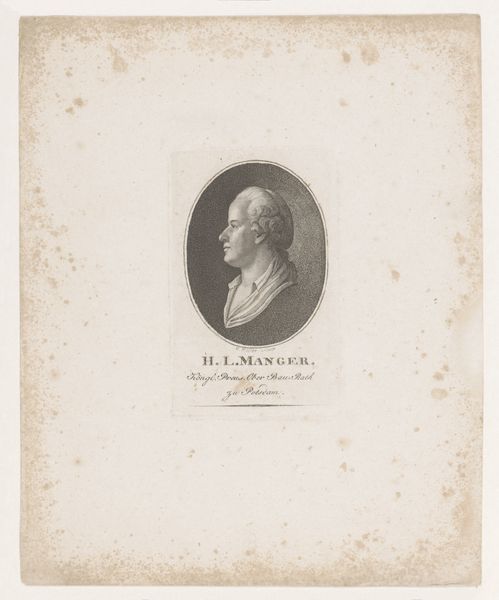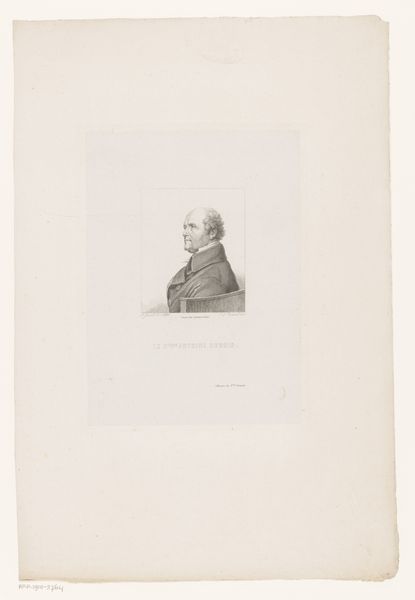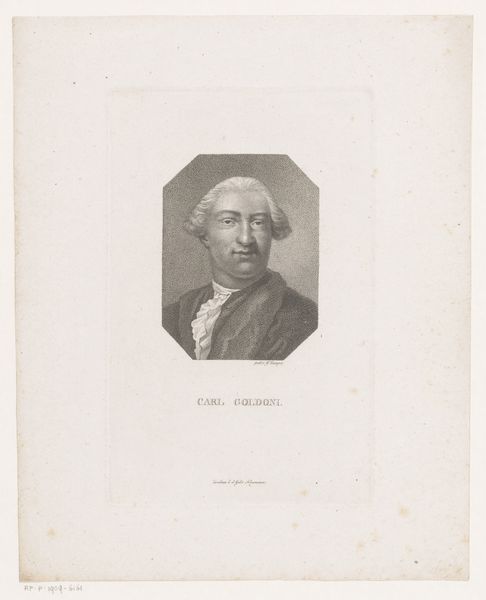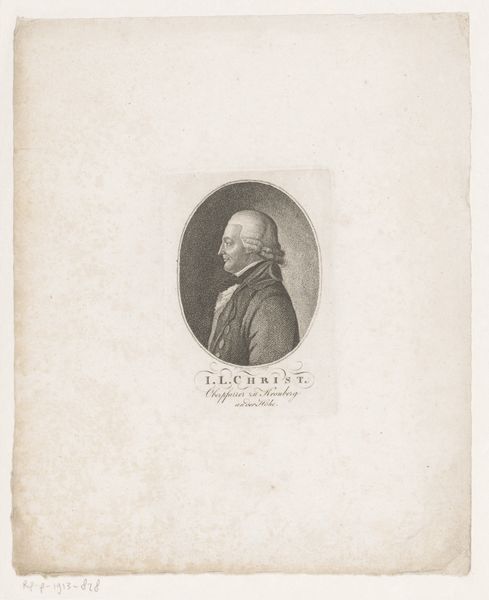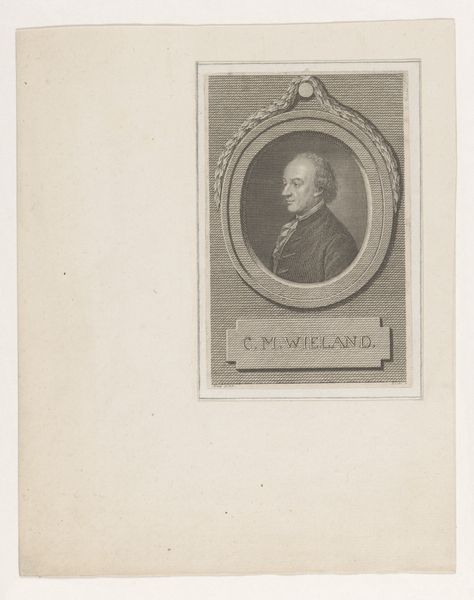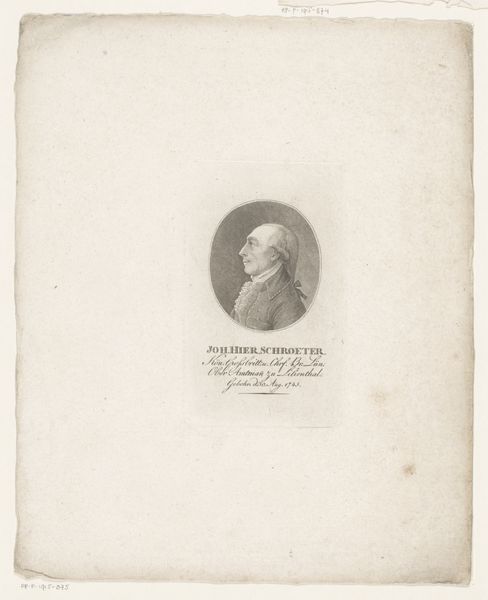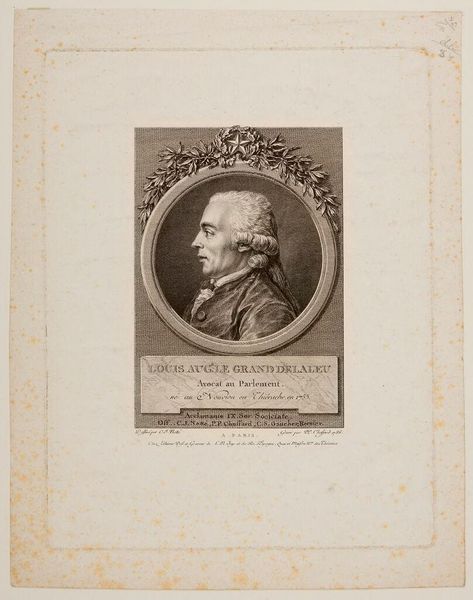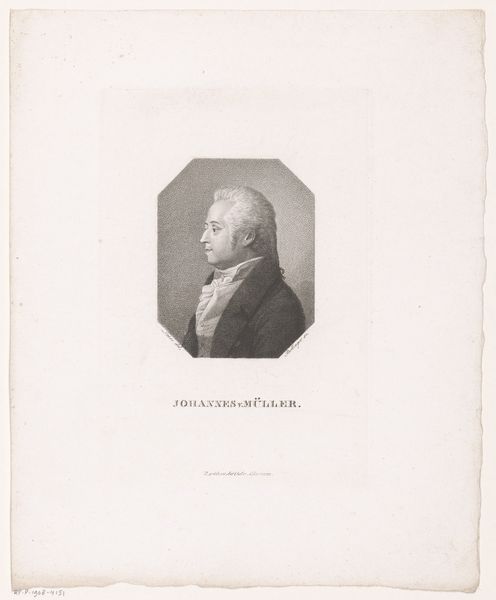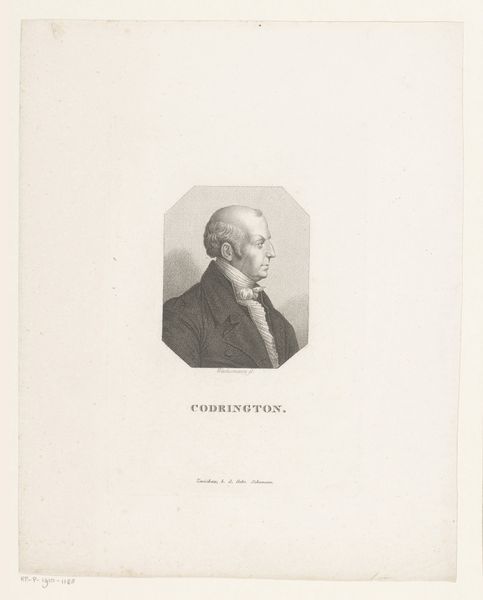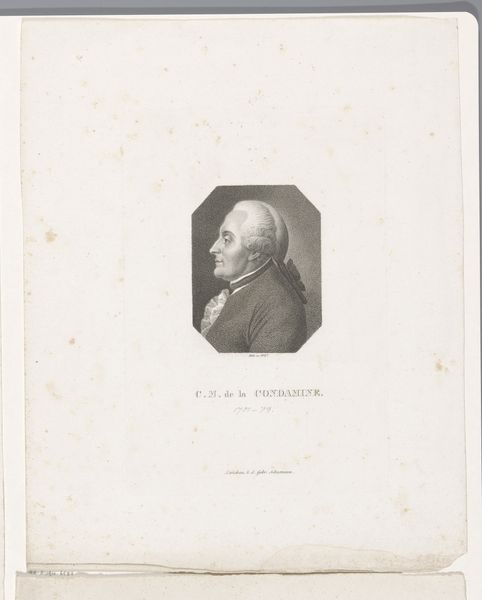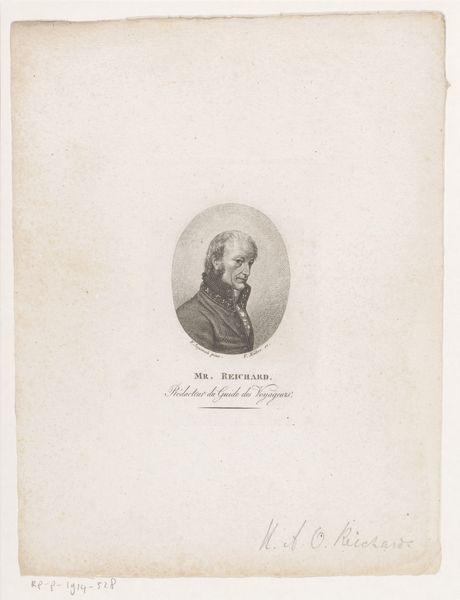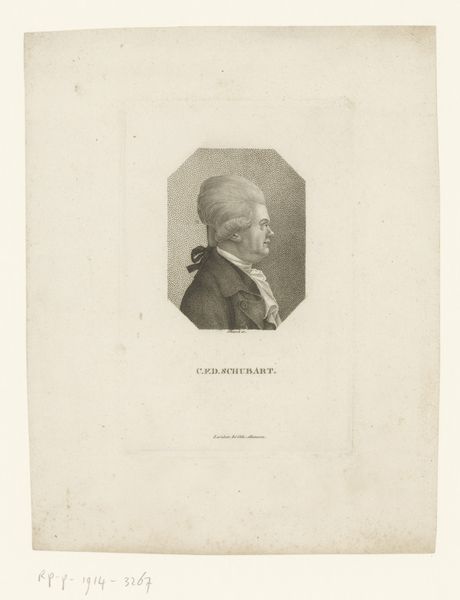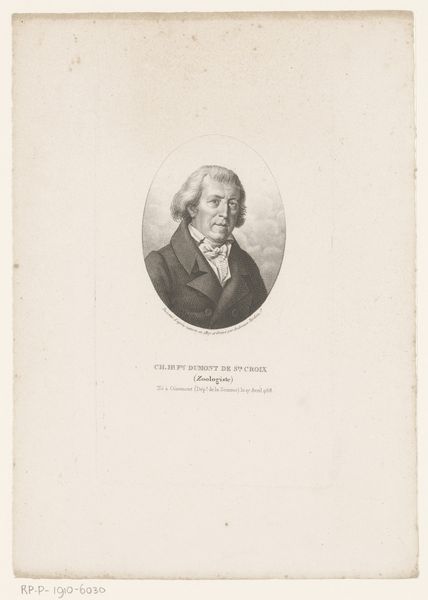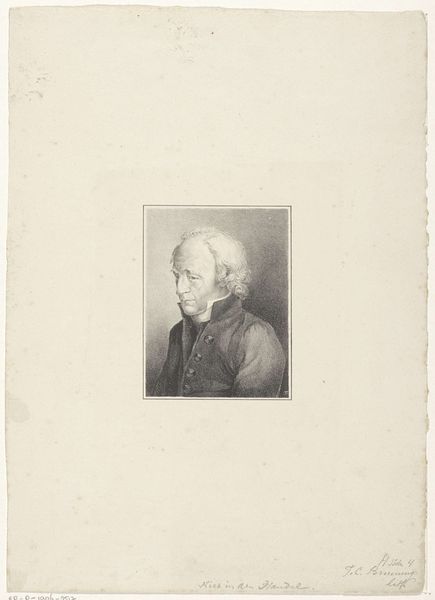
print, engraving
#
portrait
#
neoclacissism
# print
#
old engraving style
#
engraving
#
realism
Dimensions: height 181 mm, width 122 mm
Copyright: Rijks Museum: Open Domain
This portrait bust of Christoph Martin Wieland was made by Johann Friedrich Bolt, likely in the late 18th or early 19th century. It's a print, meaning that it was not drawn directly by hand, but produced through an industrial process. Look closely, and you'll see that the image is built up from very fine lines, a technique called stipple engraving. This was achieved by etching an image onto a metal plate, then using this as a stamp. Though mechanical, the process required tremendous skill. The engraver would have needed great control over the pressure and angle of their tools to create the subtle gradations of tone, and the illusion of three-dimensionality. The image speaks to the increasing demand for portraiture fueled by the growth of a middle class. Making multiple copies of a single image democratized representation. Once an elite privilege, portraiture became a commodity, available to a wider market. So this image gives us insight into both the artistry of printmaking, and the social and economic context in which it was made.
Comments
No comments
Be the first to comment and join the conversation on the ultimate creative platform.
